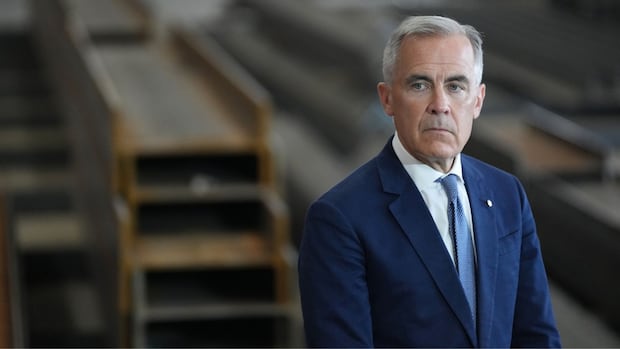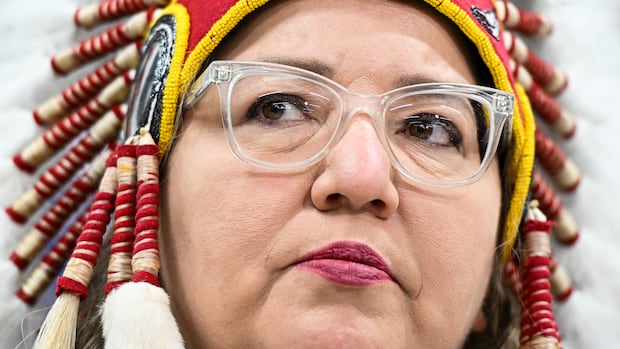[
Prime Minister Mark Carney is scheduled to address First Nations leaders Thursday at a summit called to allay their concerns over the Liberal government’s major projects legislation.
The two-day summit at the Canadian Museum of History in Gatineau, Que., launched Wednesday afternoon and runs all day Thursday.
Bill C-5, passed last month, allows for fast-tracked approval for projects deemed to be in the national interest, such as pipelines, mines and ports.
The bill sped through Parliament and was amended to require provincial consent for national projects but the Senate voted down Mi’kmaw Sen. Paul Prosper’s proposed provision to include free, prior, and informed consent in the language of the bill.
“Our rights cannot be implemented or respected without us, in substance and in process,” said Assembly of First Nations National Chief Cindy Woodhouse Nepinak at a news conference in Ottawa Wednesday.
“They cannot be respected after the fact.”
Woodhouse said the over 600 First Nations from across the country have a diversity of opinion on the legislation and the summit should have occurred prior to the bill’s passing.
She said she wants Carney to come to the table with meaningful amendments to Bill C-5 and solutions to the “$350 billion gap in infrastructure for First Nations kids in this country.”
At the AFN news conference, Joanna Bernard from Madawaska Maliseet First Nation, AFN regional chief for New Brunswick, said Carney’s summit isn’t really consultation.
“They’re coming in, they’re putting up the agenda, they’re deciding how this is going to proceed, but definitely it is not consultation. If it was we wouldn’t be here, we would be running the agenda, and this is not the case today,” said Bernard.
Assembly of First Nations National Chief Cindy Woodhouse Nepinak will give Prime Minister Mark Carney the ‘benefit of the doubt,’ but said he should have held a summit with First Nations before the bill passed.
Carney has said Indigenous consultation is central to the major projects bill, but Indigenous leaders have said that’s a difficult promise to trust without explicit amendments.
“Until an appropriate process founded in free, prior and informed consent is established between First Nations rights holders and the Crown, the Crown’s legal obligations will not be met,” said Woodhouse Nepinak.
“Chiefs have made it very clear that First Nation consent for major projects is not optional.”
On Monday, nine First Nations in Ontario filed a legal challenge against Bill C-5, and an Ontario law, Bill 5. The First Nations want the court to find the two laws unconstitutional.
The Supreme Court has previously ruled First Nations have a right to be consulted on projects under Indigenous rights and title — but they do not have a final veto on if a project goes ahead.

